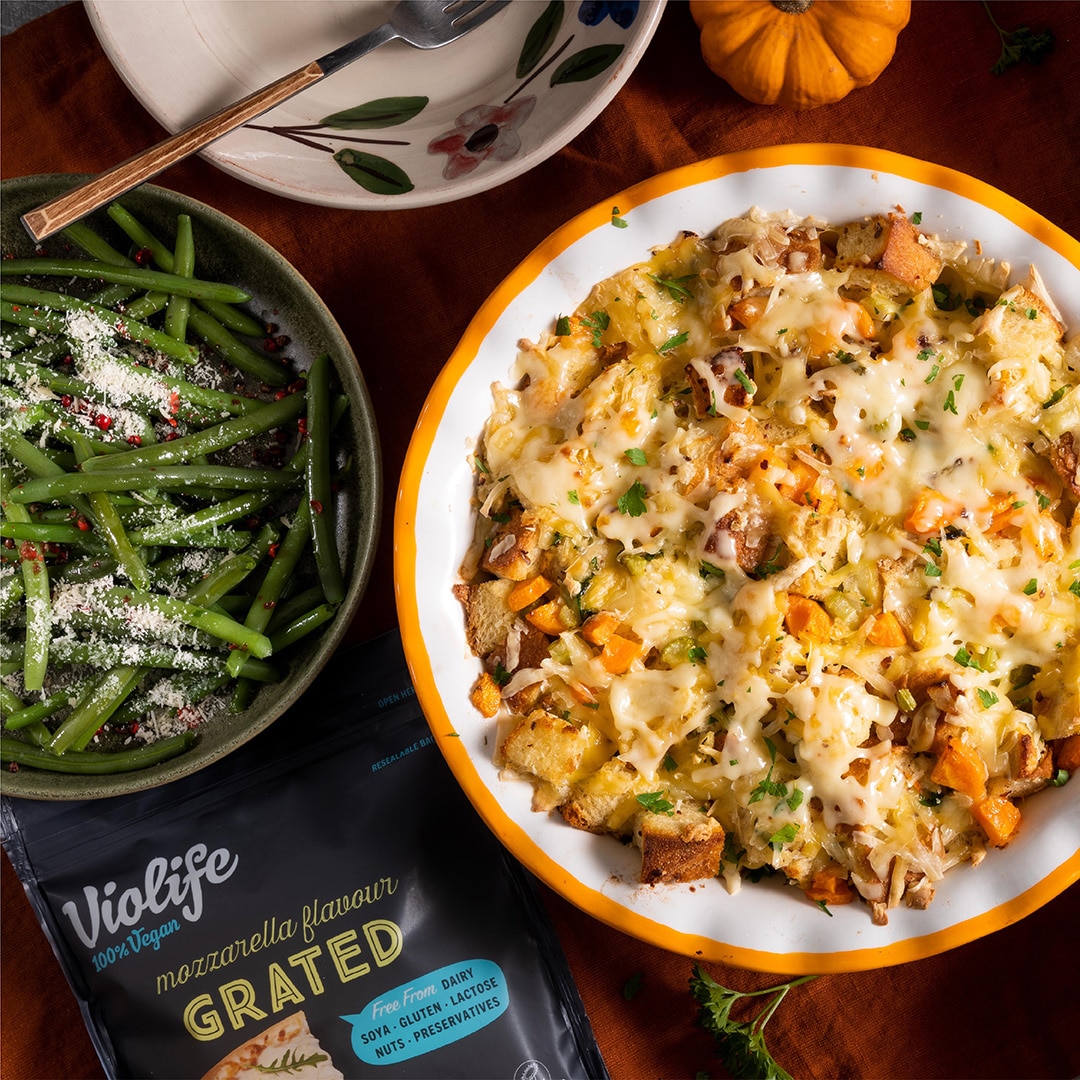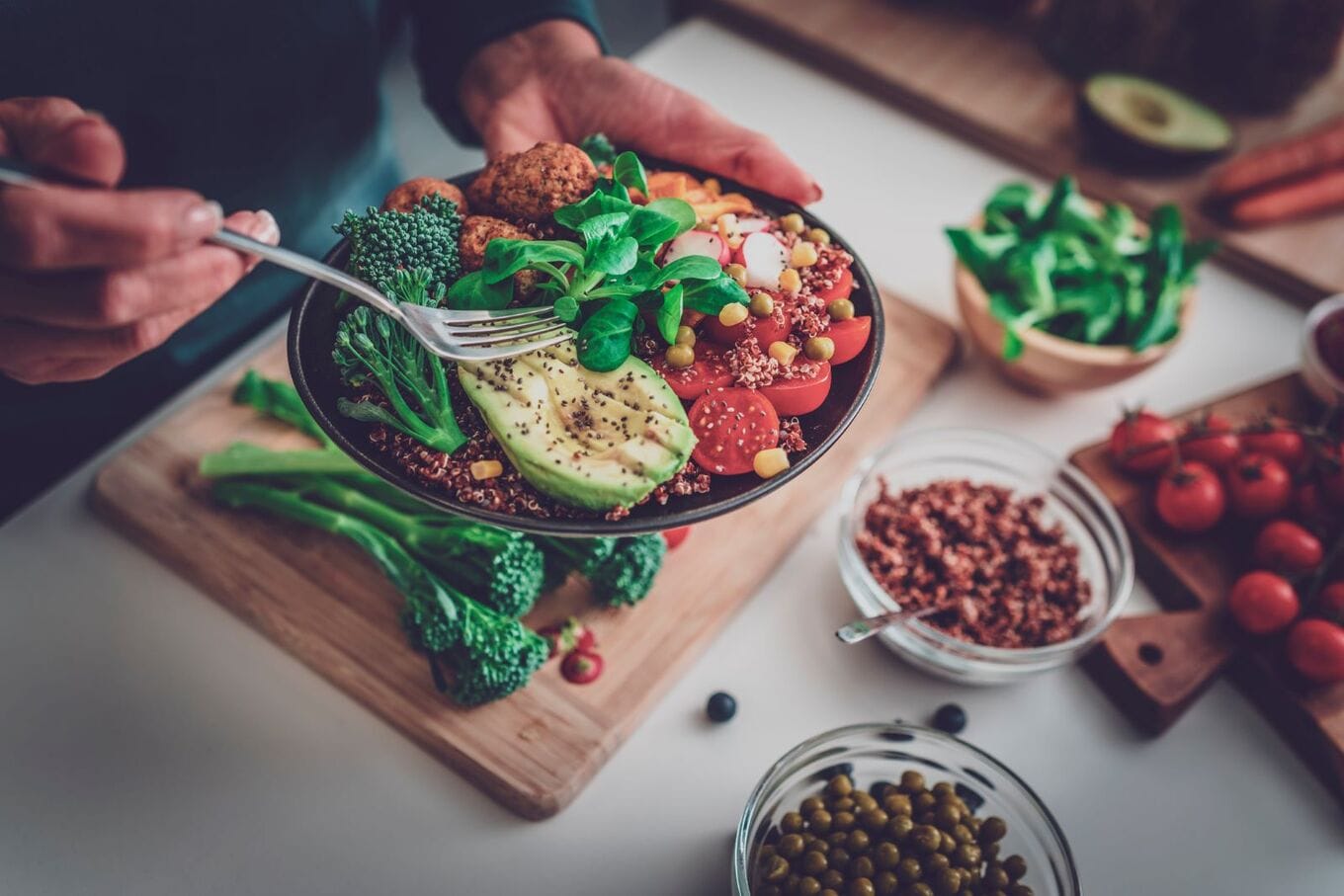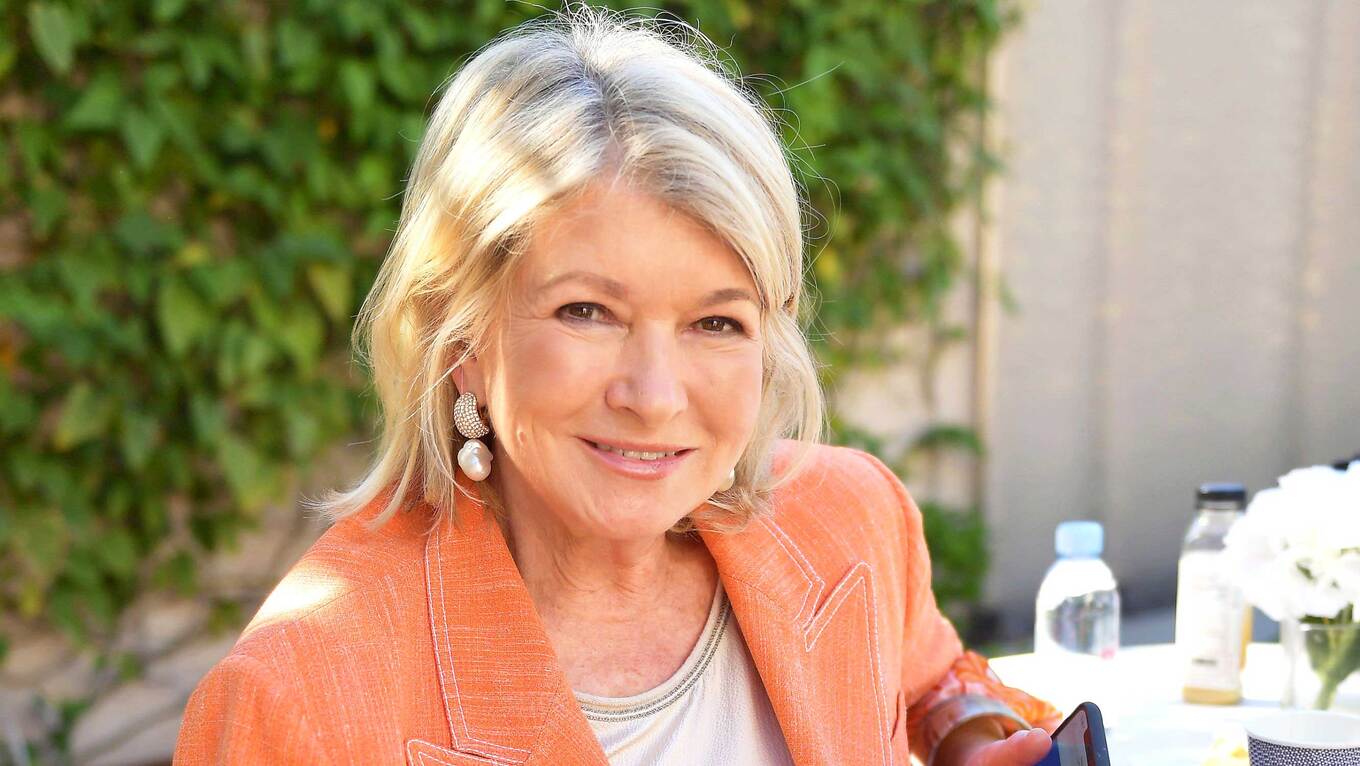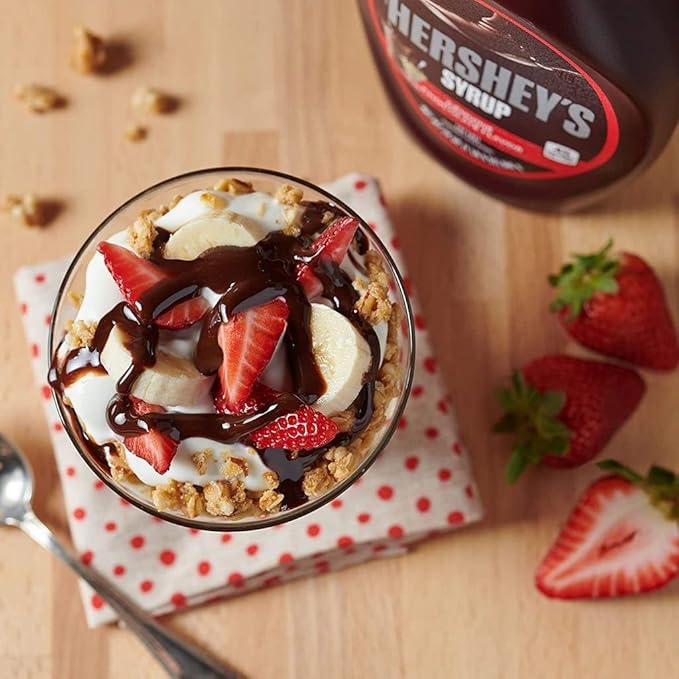For many flexitarians or vegan-curious people, one of the main things preventing them from going plant-based is usually the thought of having to give up cheese. It’s no surprise, really. Cheese is the backbone of many popular foods. To state the obvious, it’s a key ingredient in pizza, for example. And you can’t have a late-night grilled cheese without, well, the cheese.
Across cultures, cheese is a go-to ingredient. In India, paneer features in many curries, and in Italy, parmesan is grated on top of pasta and risotto. In France, the home of Brie, Camembert, and Roquefort, more than 95 percent of the population regularly eats cheese.
But what is all this dairy doing to our bodies? Is it unhealthy? And is vegan cheese really a better alternative? Here, we take a closer look at the world of cheese and examine why it might be time to open our minds to the plant-based alternatives on offer.
Table of Contents
What does dairy do to the body?
The average American eats more than 40 pounds of cheese per year. It’s a lot, but when you think about the sheer amount of dishes it features in (pizza, cheeseburgers, grilled cheese sandwiches, poutine, mozzarella sticks, macaroni and cheese—the list goes on and on), it’s a pretty plausible figure.
Cheese is not the only form of dairy US consumers eat, of course. There’s also yogurt, butter, and milk, for example. But while they are popular, none of these foods seem to have the same grip on society that cheese does. And that’s because it actually has an impact on the brain in the way that other dairy foods just don’t, says Ashley Kitchens, MPH, RD, LDN, owner of Plant Centered Nutrition.
Unsplash
“Cheese keeps you coming back for more,” Kitchens tells VegNews. “It contains a protein called casein that releases casomorphins. When you eat cheese, it triggers dopamine, the ‘feel-good’ hormone, production in your brain.” While many dairy products contain casein, cheese has the most, she explains.
“The reason people say ‘I could never give up cheese’ more often than they say ‘I could never give up milk’ is because cheese contains about seven times more casein than milk, making your brain and taste buds desire it all the more,” Kitchens adds.
And research backs up her view. In 2015, using the Yale Food Addiction Scale (a tool first introduced in 2009 that was designed to assess food addiction), scientists asked 120 students and 384 individuals from outside universities to choose between 35 foods, all of which varied in nutritional value. Among most of the top-ranking foods were processed foods, like pizza, that contain cheese. “[Casomorphins] really play with the dopamine receptors and trigger that addictive element,” Cameron Wells RD told Tech Times in 2015, regarding the study’s findings.
Is cheese unhealthy?
Cheese may be addictive, but is it actually unhealthy? According to Kitchens, cheese is a source of protein and calcium, but eating it regularly could have negative health implications, and that’s largely because of its saturated fat content.
“When you’re eating dairy products like cheese, even though it may taste good, you’re eating a food rich in saturated fat, which can be harmful to your body,” she explains. This is because it can increase cholesterol, including low-density lipoprotein (LDL) cholesterol, which is commonly referred to as “bad” cholesterol and is a contributing risk factor to heart disease.
 Sangeet Rao/Pexels
Sangeet Rao/Pexels
“It’s recommended to limit your saturated fat intake to under 10 percent of calories a day, preferably less than that,” Kitchens says. “When you’re eating dairy products, that can be challenging to do.” Cheese is also high in salt, which, again, eating too much of is associated with bad heart health, as well as high blood pressure.
Gisela Bouvier, MBA, RDN, LDN, who owns Gisela Bouvier Nutrition, is predominantly plant-based. She encourages a mindful approach to diet and doesn’t like to encourage people to eliminate foods completely, but, like Kitchens, she does agree that eating too much cheese can have a negative impact on health.
“Though one ounce of cheese can provide a quick and easy eight grams of protein, the saturated fat and sodium content can also add up quickly if cheese is eaten often and in large amounts,” Bouvier tells VegNews.
Is vegan cheese unhealthy?
To help cheese lovers move away from dairy, many brands are now launching plant-based versions of cheese. Right now, you can find vegan cheese slices and shreds, and even dairy-free Camembert and Brie, from a number of brands (find the VegNews ultimate guide to cheese here). But are these alternatives healthier than dairy cheese?
Kitchens is eager to point out that vegan cheese is not a “health food,” and many options on the market also contain saturated fat, sodium, and not much protein or other nutritional value.
But that said, options are improving. Cathedral City’s new plant-based range, for example, contains added calcium, and Violife products contain vitamin B12. And, while these products mimic the taste and texture of the real thing, they don’t contain casein, so they don’t have the same addictive element as regular dairy cheese.
 Violife
Violife
Like most processed foods, Kitchens recommends that vegan cheese is eaten in moderation. But you can also make cheesy recipes at home without having to turn to store-bought options. You can use whole food ingredients, like tofu (a great paneer alternative) and cashews (ideal for blending into a macaroni and cheese sauce), for example.
“Many studies have found vegan diets to be healthy but this is typically true for people following a more ‘natural’ or whole food vegan diet, which includes a lot of fruits, vegetables, nuts, seeds, whole grains, and legumes,” Kitchens says. If you’re interested in following a whole-food, plant-based diet, you can find our guide here.
And finally, when we’re thinking about the impact of certain foods, it’s also important to look beyond our own health. Farming cattle for food drives greenhouse gas emissions, water pollution, and deforestation. Plus, it also relies on raising millions of cows, many of whom are forced to live on industrialized factory farms.
So next time you’re thinking of cooking up a pizza or sprinkling some cheese on pasta, it’s worth remembering that plant-based alternatives can do the same job as your dairy favorite—just without the need for any animals.







